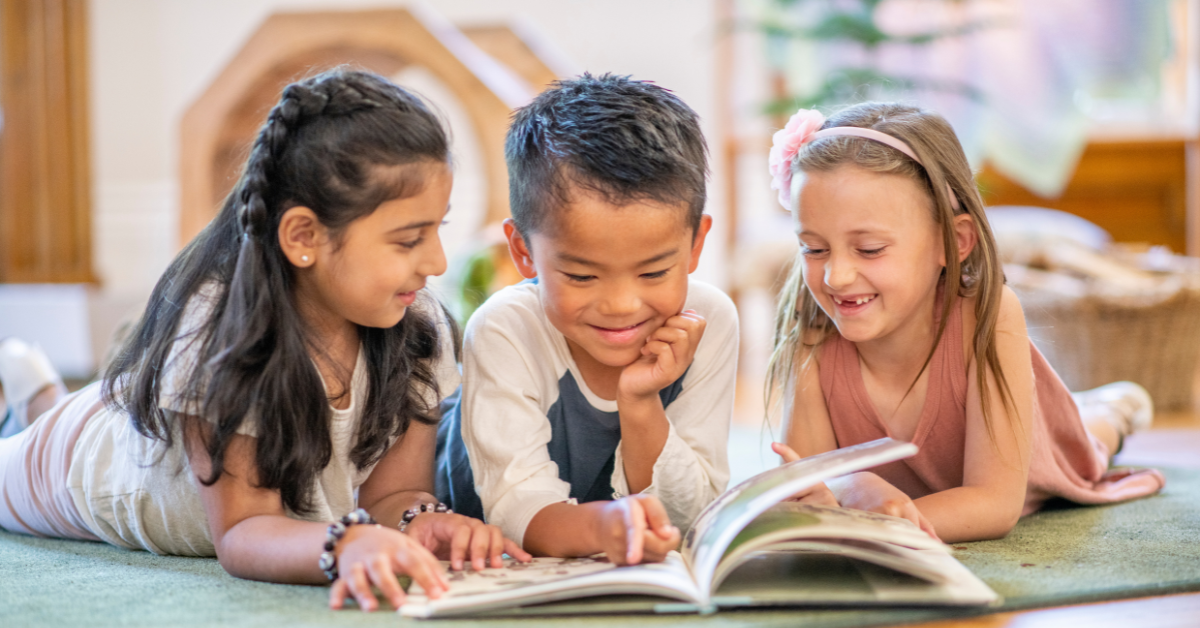Written by Madelyn Dominiski, LGPC, clinically reviewed by Jacqueline Mitchell, LMSW
Think of a movie, tv show or fairytale that you enjoyed as a child. What resonated with you? What lessons or values might you have gleaned from that story? What stories are important to you now?
Storytelling has a long history of helping human beings to learn, connect and grow. And with bibliotherapy, those storytelling traditions can be used to promote healing and treat mental health conditions like anxiety.
What is Bibliotherapy?
Bibliotherapy is a therapeutic model that uses literature and storytelling to help people improve their mental health.
Research shows that bibliotherapy helps clients see themselves in the stories they read and examine their struggles from a new perspective. It can be a safe way to process difficult experiences, and is proven to improve clients’ insight and self-esteem.
Typically, a clinician will choose a story that directly relates to issues their client is experiencing. Sometimes these stories are interactive, like with the Bibliotherapy Anxiety Workbook we use in our Hello Backpack app.
By reading and engaging with the story, the client can likely identify with the protagonist, experience catharsis in seeing their experience reflected, gain insight into their struggles, and realize they are not alone.
How Does Bibliotherapy Benefit Children?
Bibliotherapy works particularly well with children, because it engages their natural imagination and creativity. In early childhood, imaginative play is key in a child’s development.
As children grow older, the difference between fiction and reality becomes more distinct, but older children can continue to connect with and feel inspired by fictional characters in a new way.
4 Ways Bibliotherapy Benefits Kids with Anxiety
1. Identification with a Story
Anxiety can be confusing for a child. Sometimes it manifests as worry over a specific thing, but other times, it may have no identifiable source. This can feel very scary, especially when you’re young.
Anxiety symptoms can also look like irritability, difficulty concentrating, and somatic issues. Early experiences with these symptoms may feel jarring and difficult to understand, let alone articulate.
When a child reads a story that focuses on a character sharing their experience, they may begin to feel less isolated in their experience. Further, as the child reads about the character’s experience, it may help them give language to their feelings.
In Backpack’s bibliography workbook for anxiety, children are presented with characters representing the various forms of anxiety as well as a personalized avatar. This representation may help your child to feel better understood while also learning skills to help cope with navigating big emotions.
2. Understanding of Triggers
Research suggests that understanding one’s own anxiety and identifying triggers can be helpful in preventing and managing that anxiety.
Since children are still in the process of developing their emotional intelligence, stories can be a powerful tool for seeing their anxiety and its triggers from an outside perspective.
Backpacks’s bibliotherapy workbook for anxiety focuses on situations and circumstances that may be triggering, as well as thoughts and feelings that may indicate an increase in anxiety. The workbook also discusses physical symptoms that can signal an increase in anxiety.
3. Development of Coping Skills
Once your child is able to recognize their anxiety triggers, bibliotherapy can also help them learn coping mechanisms for managing anxiety.
In Backpack’s bibliotherapy workbook for anxiety, the story teaches your child to practice coping skills and offers a variety to try out in the moment. We highlight coping skills in several areas, including mindfulness, distraction, movement and more.
4. Empowerment and Increased Confidence
Through bibliotherapy, children can feel empowered to address their symptoms head on and reframe things like negative self-talk. As the character in the story’s confidence increases, the reader’s confidence may increase, too.
In Backpack’s bibliotherapy workbook for anxiety, readers are challenged to identify their negative thoughts and practice reframing them. This is a great tool in safely engaging children in positive self-talk without it feeling overwhelming.
If you think your child could benefit from bibliotherapy, the Hello Backpack app is an excellent place to start. Download the app and create an account today by visiting this page. We’re here to support you with clinically-backed care!

